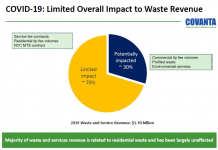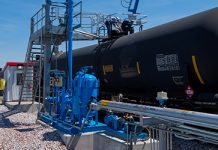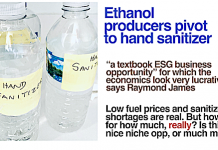If the Ethanol industry is going to rehabilitate its image, it needs to understand the issues.
Tom Konrad, Ph.D., CFA
In his opening remarks at the 25th annual, 2009 Fuel Ethanol Workshop, Mike Bryan, the CEO of BBI International called on the attendees to "Take back control of the [fuel ethanol] industry’s image."
It’s no secret that the ethanol industry is having problems, mostly, in my mind, due to a classic commodity squeeze: the industry has no pricing power either for its inputs (corn and natural gas,) or its products (ethanol, with a price which closely tracks gasoline.) This is why, and Mr. Bryan said, the industry could not get plants financed a year before the financial crisis.
Conspiracy or Reality?
For Mr. Bryan, this is about jobs. He went on to say that he is "not a conspiracy theorist, but a realist," but undermined his claim to realism by going on to say, "Tell [the people who say we were building too fast,] "about the people who need those plants for jobs. Tell that to the community that wants to build an ethanol plant in their community." Profitable businesses create secure jobs; unprofitable businesses create insecure jobs. Just as I recently pointed out that investors should not be buying stocks because they need them to go up, the ethanol industry should not be building ethanol plants because they need the jobs.
Ethanol plants have been a great boon to rural economic development. As a local value added product to low value commodity corn, they keep more jobs in the community, which in turn create more jobs through economic multiplier effects… but only if the ethanol plants are profitable. If farmers invest in a local ethanol plant (50% of ethanol plants are locally owned), but that plant cannot be run because they cannot sell the ethanol for the price of the corn, there will be no jobs from the plant, and the investors will lose their investment as well. Perhaps they should have considered investments in a locally owned wind farm, or making their farming operations more energy efficient.
In short, jobs are not created by, and do not justify unprofitable investments. There are simply better uses for the money, both in terms of jobs and economic returns.
Is there a conspiracy? Oil companies don’t want to change the way they do business, and be forced to blend in ethanol, nor do they like the competition, even if it is only 7% of their business. That’s real money on the margin, even if land use constraints will not allow ethanol to entirely displace oil. The food processing industry has even more reason to dislike fuel ethanol. Although only about 10-15% of price rises in food are due to ethanol-induced corn price rises, ethanol makes a convenient whipping boy for price rises which arise from many factors, most importantly the rising price of energy. But having people who don’t like you does not make for a conspiracy.
Peak Oil
General Wesley Clark, Co-Chairman of Growth Energy, is not a conspiracy theorist. He, too, is passionate about the need to take back the industry’s image in his keynote address. For General Clark, ethanol is a national security issue, and I completely agree. Peak oil means that oil will increasingly be sold at a premium, and as scarcity increases, producing countries will have increasing incentives for producers to keep this high quality liquid fuel for themselves.
Although the most energy efficient way to power a vehicle is with electric power, batteries are too expensive and have too low an energy density to be practical for long trips. We will continue to need liquid fuels to power longer trips. As General Clark said, "Is there any doubt that that the costs of
Carbon
Compared to the value of ethanol as a liquid fuel, arguments about carbon impact are de minimis. Bob Dinnen, President of the Renewable Fuels Association an industry lobby group, was the most moderated of the general speakers. Unlike the other speakers, I’m confident that his assertions can be backed up with studies. He claims a 61% reduction in greenhouse gas emissions for corn ethanol compared to gasoline. This is almost certainly the result of a best case analysis, but the worst case analysis are no more than a 30% increase in emissions, and with current technology, there is almost certainly some greenhouse gas savings. Even if there is a slight increase in carbon emissions from corn ethanol, these extra emissions are likely to be minimal, and less than tar sands.. When it comes to greenhouse gas reduction, ethanol, even corn ethanol, is not the enemy. The enemy of the human race, as Jim Hansen says, is coal, and while we environmentalists should be concerned about any lack of decrease in greenhouse emissions, we should not lose sight of the true enemy. The ethanol industry as a whole agrees that they need to increase their efficiency and reduce their carbon emissions. These should be measured as accurately as possible, but any green washing we see in the ethanol industry pales against that coming out of the coal industry. Given limited political capital, this is where environmentalists should be focusing our efforts.
Food and Fuel
Ethanol is a domestic fuel, that puts corn to a much better use than high fructose corn syrup that contributes to growing epidemics of obesity and diabetes. From a historical perspective, we pay hardly any part of our income for food. Ethanol does reduce the price of gas, and the money we pay for that gas stays closer to home. Given that, an increase in food prices from corn ethanol may still lead to a net gain for the average consumer, and the economic benefits of a domestic fuel should make us willing to pay for a small net increase in our overall food and fuel budget.
If we’re concerned about Ethanol’s carbon footprint, we might pause to consider the carbon impact of our food. If a rise in food prices results from corn ethanol, the decrease in our collective carbon footprint from what we eat. Whatever indirect land use impact we attribute to ethanol, we should be attributing a similar indirect land-use impact to the soda we drink that’s so full of high fructose corn syrup.
Stop Exaggerating
While environmentalists should not be joining oil companies and food processors by piling on the ethanol industry over its imperfect environmen
tal record, the Ethanol industry could do itself a lot of good by avoiding the exaggerated claims they are prone to.
General Clark said, "There’s plenty of all we need to have all the fuel we want and all the food we want," and Mr. Bryan said something similar. This is simply false. The US currently has about 200 million acres devoted to corn and soy. Corn Ethanol can produce about 200 gallons per acre, while soy biodiesel can produce about 50 gallons per acre of biodiesel. If all this land were converted to fuel production with corn ethanol (incidentally degrading the land and increasing fertilizer usage), that means we could produce 10 billion gallons of ethanol, the equivalent of about 8 billion gallons of gasoline per year, or about half a million barrels per day. The US consumed about 20 million barrels of crude per day in 2007, and had to import about 10.5 million barrels of that. Not all of our imported oil was used for gasoline, but not all of our corn and soy can go to displace oil, either.
The numbers don’t add up. The Ethanol industry undermines its own credibility with these exaggerated claims.
The industry also uses deceptive statistics regarding indirect land use impacts. Bob Dinnen said that deforestation has to do with grazing and logging, not Ethanol. They made much of the fact that deforestation has decreased as ethanol production has increased. Correlation is not causation, nor is anti-correlation lack of causation. According to a recent article in The Economist, "rate of deforestation tends to move with prices for beef and soya, with a lag of about a year." This is because the land is cleared for grazing, and then sold on to soy farmers.. As Biodiesel producers discovered to their dismay, rising corn prices leads farmers to shift land from soy to corn, which in turn leads to rising soy prices, and hence to rising deforestation a year later.
As I left the conference on the first day, I walked by Robert Zurbin, author of Energy Victory: Winning the War on Terror by Breaking Free of Oil. He was sitting in the main lobby with a stack of books to sign. I had caught the end of his talk an hour before, in which he spun a captivating and convincing yarn about how oil had been key to allied victory in World War II. I walked up and told him how I only caught part of his talk, but liked what I had heard, and he encouraged me to buy the book. I was tempted, but then he lost the sale: he told me that, if only 50% of cars were mandated to be Flex-Fuel, it would put a "cap on the price of oil." While I agree with him that the increased choice would be good for consumers, and even moderate the oil price, there is simply note enough feedstock, either domestically or globally, and too many other valuable uses for that feedstock to cap the price of oil in the face of expanding demand (which is only likely to be restrained by price or economic downturn) and declining oil output.
There are many good reasons to like Ethanol, even Ethanol from corn. But it’s only part of the solution: Ethanol is not the panacea, and it’s not without adverse impacts. It’s also not always good business. By acknowledging these weaknesses, ethanol advocates would do a lot to raise their credibility with many environmentalists who are natural allies with an industry taking real steps to reduce its environmental impact and enhance our energy security in the face of the much larger challenges of Peak Oil and Global Warming.
My impression is that the major agenda item on the industry’s agenda is legislation requiting 50% of vehicles to be flex-fueled. This would probably be a change for the better, definitely from an economic perspective (the added cost to the vehicle is fairly minimal. Unfortunately, the use by carmakers of flex fueled vehicles as a loophole in CAFE standards serves to undermine environmental goals. If the industry wants more environmental allies today, it will need to be clear than environmental goals will not again come second. I think most environmentalists would get behind a 50% or higher requirement for flex fuels vehicles if it were in conjunction with the closure of the flex fuel loophole in CAFE standards.








